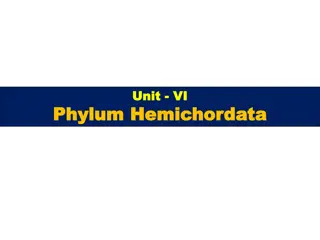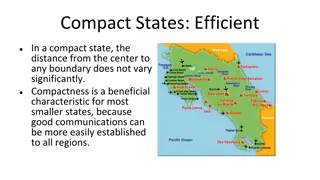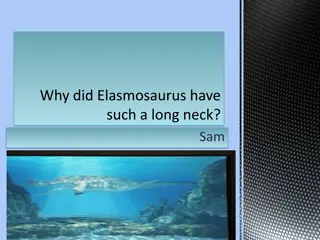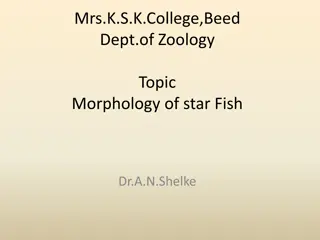External Morphology and Functions of Balanoglossus
Balanoglossus is an elongated, wormlike animal with a unique body structure divided into proboscis, collar, and trunk regions. The body wall consists of an outer epidermis, inner musculature, and peritoneum, providing protection and support. The proboscis is a club-shaped structure, the collar conta
0 views • 7 slides
Comparative Study of Abdominal Bones in Various Animals
Study of the abdominal bones in the ox highlights characteristics like elongated transverse and curved articular processes, whereas differences in horse bones include shorter bodies and varying curvature of transverse processes. Understanding these anatomical variances provides insights into the uni
0 views • 16 slides
Understanding Myopia: Causes, Treatment, and Management
Myopia, also known as nearsightedness, is a common visual condition that affects a significant portion of the Canadian population. It is typically caused by elongated eyeballs or excessive corneal curvature, leading to blurry distance vision. While glasses or contact lenses can correct myopia optica
0 views • 15 slides
Insight Into the Adaptations and Habits of Aquatic Freshwater Eels
The Anguillidae family includes freshwater eels with snake-like bodies, dwelling in diverse habitats. Their catadromous nature involves migrating to the ocean to breed. Freshwater eels serve dual roles as predator and prey, displaying unique feeding behaviors. Their body structures feature elongated
0 views • 15 slides
Intestinal Helminths: Classification, Nematodes, and Common Infections
Intestinal helminths, including nematodes, are classified into unicellular and multicellular parasites. Nematodes are elongated worms found in the human body, causing common infections such as Enterobius vermicularis. The pathology of Enterobius infections often presents with pruritus ani. Learn abo
0 views • 53 slides
Characteristics of Different State Shapes Explained
Compact states have efficient communication due to their balanced shape, while prorupted states extend for access or disruption. Elongated states face potential isolation issues, and fragmented states are problematic with territorial pieces separated. Perforated states, like South Africa, completely
0 views • 17 slides
Why did Elasmosaurus Have Such a Long Neck?
Elasmosaurus had a long neck to stretch and catch food easily. Its neck could measure up to 13 meters, half of its total length, which could be up to 26 meters. With a length of up to 40 feet, Elasmosaurus would use its long neck to attack Pteranodon while hunting for fish. Despite some speculations
0 views • 6 slides
Morphology of Starfish at Mrs. K.S.K. College, Beed
Mrs. K.S.K. College in Beed, under the Department of Zoology, delves into the fascinating morphology of starfish. The external features of starfish, including its shape, size, and color variations, are explored. Specific focus is given to the radially symmetrical and pentamerous body structure of st
0 views • 14 slides







